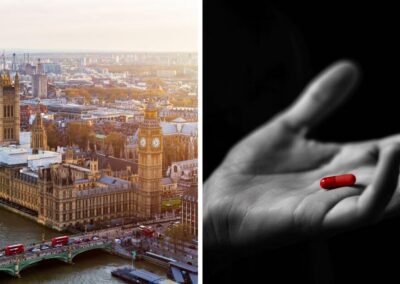In the fourth session of the Parliamentary inquiry into assisted suicide, one witness shockingly revealed to MPs that ‘right to die’ groups in Switzerland are “self-regulatory”.
Professor Samia Hurst-Majno, Professor of Biomedical Ethics at the University of Geneva, shared that “Right to die societies are not subjected to accreditation and professional criteria … there are no training requirements imposed on such societies … not from the state, not from the law. The societies themselves may, and in fact do, have training requirements for their members, but it is on their own initiative.”
‘Right to die’ societies, such as EXIT and Dignitas, are membership organisations that provide assisted suicide in Switzerland. Professor Hurst-Majno and fellow witnesses revealed that the Swiss law on assisted suicide is regulated by the “guidelines” of “self-regulatory” ‘right to die’ organisations and the Swiss Medical Association.
The law around assisted suicide in Switzerland, established in 1941, is broad. The Swiss Criminal Code only outlaws assisted suicide in Article 115 for “selfish motives”; it is permitted in all other circumstances. Euthanasia remains illegal in Switzerland. This means that an individual must administer the lethal drugs themselves (an assisted suicide) rather than a third party (euthanasia).
Attempts to regulate the practice through legislation have failed. Instead, assisted suicide providers determine the parameters of access. Professor Hurst-Majno acknowledged that “The criteria used by right to die societies have indeed expanded over the years”, initially requiring a person who requests an assisted suicide to have a terminal illness. This criterion has now been lessened to include people with an “incurable disease” experiencing “incurable suffering”.
Assisted suicide permitted for under 18s regulated by public opinion
The Professor of Biomedical Ethics also acknowledged that the current law in Switzerland does allow under 18s to request and be granted an assisted suicide. She explained that in Swiss law, under 18s are allowed to make their own medical decisions, and assisted suicide is not an exception to this.
The only thing regulating the practice for minors, according to Professor Hurst-Majno, are the guidelines mentioned above and the fact that there is the feeling that public opinion is not in favour of it. Hurst-Majno remarked “nobody will touch it [assisted suicide for minors] … My guess would be that there is too much uncertainty as to whether there would be societal support for people who dared to go into that terrain”.
Best practice demands legal regulatory framework
Right To Life UK spokesperson Catherine Robinson said “It is astounding to hear about the lack of legal safeguards surrounding assisted suicide in Switzerland. Assisted suicide is a practice where the stakes are life and death”.
“It is crazy that there is not an independent legal framework to regulate the practice. In other sectors of society, we would expect such organisations to be subject to independent scrutiny and to have to meet regulations established by an independent body. Instead, we see groups that financially benefit from the practice regulating themselves”.
“Whilst it is reassuring to hear that public opinion seems to be against assisted suicide for minors, it is naive to conclude that public opinion alone should regulate this practice. Children need to be robustly protected by the law, rather than changeable public opinion”.












